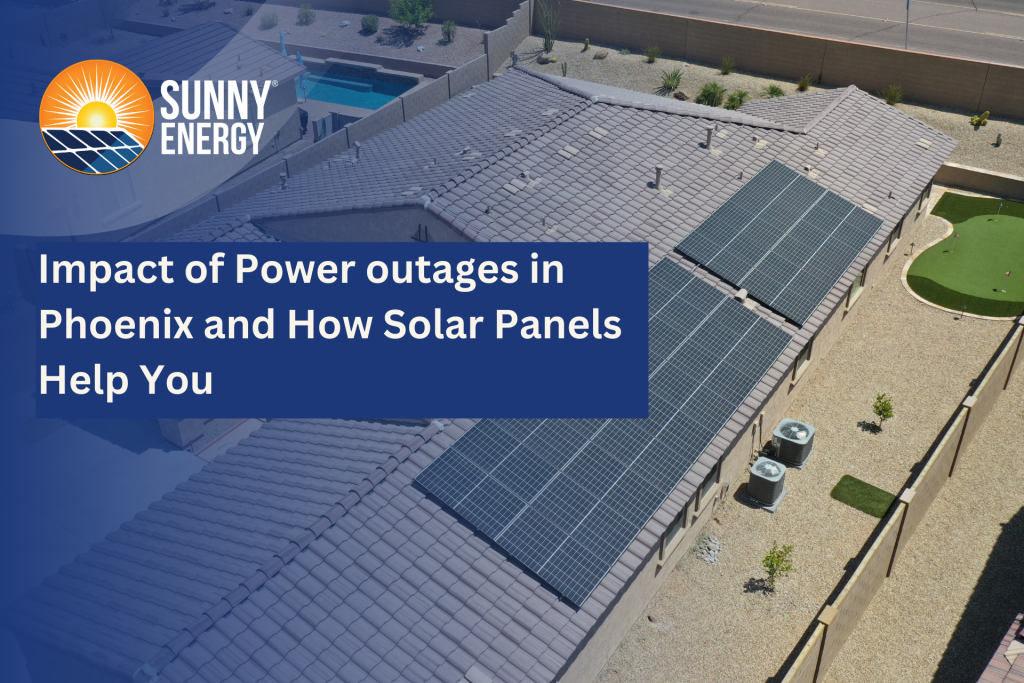In the ever-evolving world of renewable energy, solar power stands out as a beacon of sustainability. As technology continues to advance, harnessing the sun’s energy becomes increasingly accessible and efficient. One crucial component that plays a pivotal role in this eco-friendly energy transition is the solar battery.
In this blog we will delve into batteries for solar charging, how it functions, key considerations when seeking one, and the ultimate question – are batteries for solar charging worth the investment?
Batteries for solar charging: what it is and how it works?
A solar battery, also known as a solar energy storage system or solar-plus-storage system, is a device that stores excess energy generated by a solar installation during peak sunlight hours. Traditional solar power systems often face the challenge of intermittency, as the sun isn’t always shining. Batteries for solar charging address this issue by allowing users to store surplus energy for later use, such as during nighttime or on cloudy days.
The primary working principle involves the conversion of solar energy into electrical energy by the solar panels. The excess energy is then directed to the solar battery, where it is stored for future consumption. When electricity demand surpasses the solar panel’s output, the stored energy is released, providing a continuous and reliable power supply. An added advantage of solar batteries is that they can provide power to your home during a grid outage.
Things to look for when you are looking for a solar battery
1. Capacity:
The capacity of a solar battery is determined by the amount of energy it can store and the amount of peak power output. These are measured in kilowatt-hours (kWh) and kW, respectively. Energy in kWh is essentially how much electricity the battery can provide over a specific period. Power in kW is how much power the battery can output to start and run lights and appliances. To determine the appropriate capacity, assess your household’s energy consumption patterns, and which appliances you must have during an outage. If you have a high energy needs, high power demands or frequently experience periods of low sunlight, you’ll need a battery with a higher capacity to ensure a continuous power supply during cloudy days or at night. If you plan on using high power appliances, such as air conditioners, with batteries when the grid is down, you may need two or more batteries to get adequate power output.
2. Battery chemistry:
Battery chemistry refers to the materials and processes used to create the battery. Common solar battery chemistries include lithium-ion and lead-acid. Lithium-ion batteries are widely preferred for solar applications due to their higher energy density, which means they can store more energy in a smaller and lighter package. Additionally, they typically have a longer lifespan compared to lead-acid batteries. Consult with your Arizona solar contractors about battery because choosing the right chemistry depends on factors such as cost, maintenance requirements, and specific application needs.
3. Cycle life:
Cycle life is the number of charge and discharge cycles a battery can undergo before its capacity degrades to a specified percentage of its original capacity. Opting for a solar battery from Arizona solar company with a higher cycle life is crucial for long-term reliability. A longer cycle life means the battery can endure more charge and discharge cycles, making it more cost-effective over its lifetime. Battery warranties usually tell you how many cycles the battery is warrantied for, which is a good indication of cycle life.This is especially important in solar energy systems, where batteries for solar charging undergo daily charge and discharge cycles.
4. Depth of discharge (DoD):
Depth of Discharge (DoD) represents the percentage of a battery’s capacity that can be used before it needs recharging. A lower DoD, meaning you use a smaller percentage of the battery’s capacity before recharging, is associated with a longer battery lifespan. While a battery with a higher DoD may offer more usable energy, it could result in a shorter overall lifespan. It’s crucial to strike a balance between the usable capacity and the desired lifespan based on your specific needs and budget.
5. Power rating:
The power rating of a solar battery is one of the least understood characteristics, but it’s very important. Power capacity, or rating, indicates how much electricity the battery can deliver at once, measured in kilowatts (kW). Choose a solar battery from the best Arizona solar companies with an adequate power rating to meet the peak demand in your household. This ensures that the battery can provide sufficient power during high-energy consumption periods, such as when multiple appliances are running simultaneously. A higher power rating may be necessary for larger households or those with high energy-intensive appliances. This is especially important during a grid outage when there is no power from the grid to make any differences.
By carefully considering these factors, you can make an informed decision when selecting a solar battery that aligns with your energy needs, budget, and long-term goals.
How to choose the right solar battery for your needs
Selecting the right solar battery involves understanding your specific energy needs and preferences. Here are some additional factors to consider when choosing a solar battery:
1. Compatibility with solar inverter:
Ensure that the solar battery you select is compatible with your existing solar inverter. Some batteries are designed to work with specific inverters, and using incompatible equipment can lead to inefficiencies or even system failure. Consult with your solar installer or the manufacturer to verify compatibility.
2. Manufacturer reputation and warranty:
Research the reputation of the battery manufacturer. Established brands with a history of reliability and good customer service are often a safer choice. Additionally, consider the warranty offered. A longer warranty period can provide peace of mind and indicate the manufacturer’s confidence in their product. Look for warranties that cover both performance and defect issues.
3. Scalability:
If you plan to expand your solar energy system in the future, consider choosing a battery that is scalable. Some batteries allow you to add more units to increase storage capacity as your energy needs grow. This flexibility can be valuable for accommodating future energy demands without replacing the entire system.
4. Efficiency:
The round-trip efficiency of a solar battery indicates how much energy is lost during the charge and discharge cycles. Higher efficiency batteries ensure that more of your stored energy is available for use, maximizing the benefits of your solar investment. Look for batteries with an efficiency rating of at least 90%.
5. Safety:
Safety is paramount when dealing with energy storage systems. Research the safety features of the battery, such as thermal management systems, overcharge protection, and certifications from reputable organizations. Lithium-ion batteries, for instance, are known for their safety and reliability when compared to other chemistries.
6. Installation and Maintenance:
Consider the installation process and maintenance requirements of the battery. Some batteries are easier to install and maintain than others. Factor in the potential costs and efforts associated with these aspects when making your decision. A professional installer can provide insights into the ease of installation and any ongoing maintenance needs.
By thoroughly evaluating these factors, you can select a solar battery that not only meets your current energy requirements but also supports your long-term sustainability goals. Investing in the right solar battery enhances the efficiency and reliability of your solar energy system, making it a worthwhile addition to your renewable energy strategy.
Are batteries for solar charging worth It?
The decision to invest in a solar battery depends on individual circumstances and goals. Here are some factors to consider:
1. Energy independence:
Batteries for solar charging provide autonomy, allowing users to rely less on the grid and become more energy independent. Using more of your own solar energy is far more satisfying than reliance on the grid.
2. Cost savings:
While the initial investment can be significant, batteries for solar charging may lead to long-term cost savings by reducing reliance on grid electricity and taking advantage of peak/off-peak rates. The 30% Federal solar tax credit may be used on batteries for solar charging. You may also find that your utility offers some incentives for homeowners to add battery storage to their solar systems. Batteries can help utility companies by reducing the variability associated with solar power generation.
The cost of batteries for solar charging has come down a lot recently. Combined with tax credits and utility incentives, if available, you may find that adding batteries for solar charging to your system increases your return on investment with solar, and is the best solution for solar for your home.
3. Environmental impact:
Investing in batteries for solar charging aligns with a commitment to sustainability and reducing carbon footprints.
4. Grid reliability:
In areas prone to power outages or with unreliable grid infrastructure, batteries for solar charging can serve as a backup power source. They can also help utility companies stabilise the grid, which is another reason why they sometimes offer solar system owners incentives for batteries for solar charging.
Conclusion
Solar batteries represent a pivotal advancement in the realm of renewable energy, offering an effective solution to the intermittency challenge associated with solar power. As technology continues to improve and costs decrease, the adoption of batteries for solar charging is expected to rise. Before making the leap, carefully consider your energy needs, solar Arizona companies, budget, and long-term goals to determine if investing in a solar battery is the right choice for you. Embracing solar technology not only contributes to a greener future but also provides a sense of energy independence and resilience in an ever-changing world.
Sunny Energy is considered as one of the top rated solar companies in Arizona, known for its exceptional service and commitment to providing high-quality solar solutions. If you often ask for solar power companies near me, then look no further. The best solar company in Arizona, Sunny Energy can be your one stop solution for all your solar needs. Contact us and get a free solar quote today.






